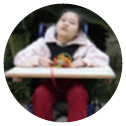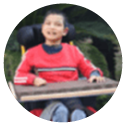 At World Forgotten Children Foundation (WFCF), our mission is to support projects that promote the health and welfare needs of underprivileged communities and orphaned children with disabilities in developing countries. In our pursuit of creating a more equitable world, we recognize the critical importance of digital accessibility and inclusive design practices. As we reflect on the recent Global Accessibility Awareness Day (GAAD), held on Thursday, May 16, 2024, we underscore the significance of ensuring that digital technologies are accessible to all, regardless of ability.
At World Forgotten Children Foundation (WFCF), our mission is to support projects that promote the health and welfare needs of underprivileged communities and orphaned children with disabilities in developing countries. In our pursuit of creating a more equitable world, we recognize the critical importance of digital accessibility and inclusive design practices. As we reflect on the recent Global Accessibility Awareness Day (GAAD), held on Thursday, May 16, 2024, we underscore the significance of ensuring that digital technologies are accessible to all, regardless of ability.
Understanding Digital Accessibility
Digital accessibility refers to the design and development of digital technology and content in a way that can be easily accessed, understood, and used by people with disabilities. This includes individuals with visual, auditory, motor, cognitive, or other impairments. Accessibility encompasses various aspects of digital products and services, such as websites, mobile applications, software, and electronic documents.Challenges Faced by People with Disabilities
For individuals with disabilities, inaccessible digital technology can present significant barriers to accessing information, communicating with others, and participating fully in society. Lack of accessibility can hinder their ability to perform essential tasks, such as online banking, accessing educational resources, seeking employment opportunities, and engaging with government services. Moreover, inaccessible technology can exacerbate social isolation and limit opportunities for social inclusion and civic participation.The Impact of Inclusive Design
Inclusive design, also known as universal design, involves designing products and environments that are accessible and usable by people with a wide range of abilities and characteristics. By incorporating inclusive design principles from the outset, digital products and services can better accommodate diverse user needs and preferences. Inclusive design not only benefits people with disabilities but also enhances the user experience for everyone, resulting in more intuitive, flexible, and user-friendly solutions.
Global Accessibility Awareness Day (GAAD)
GAAD serves as a poignant reminder of the importance of digital accessibility and the need to raise awareness about inclusive design practices. GAAD is an annual event held on the third Thursday of May, dedicated to raising awareness about digital accessibility and promoting inclusive design practices. GAAD aims to highlight the importance of ensuring that digital technology and content are accessible to people with disabilities, including those with visual, auditory, motor, cognitive, or other impairments. On GAAD, individuals and organizations around the world come together to participate in workshops, webinars, hackathons, and awareness campaigns focused on digital accessibility. By sharing knowledge, exchanging ideas, and collaborating on initiatives, GAAD inspires action and drives progress towards creating a more inclusive digital environment.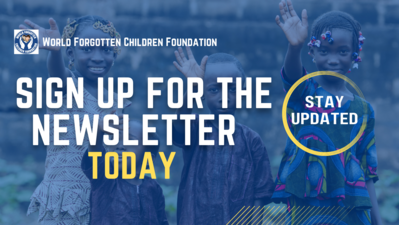
The GAAD Foundation
Central to the commemoration of GAAD is the GAAD Foundation, an organization dedicated to promoting digital accessibility and fostering inclusivity worldwide. Serving as the driving force behind GAAD, the foundation orchestrates a global movement aimed at raising awareness and driving action towards greater digital accessibility. Founded with the vision of a world where digital technologies are accessible to all, the GAAD Foundation champions inclusivity through education, advocacy, and collaboration. GAAD Foundation's mission aligns closely with that of GAAD itself: to spark dialogue, inspire action, and catalyze change in the digital landscape to ensure equitable access for individuals of all abilities. The GAAD Foundation's initiatives resonate globally, mobilizing individuals, organizations, and communities across continents. Through partnerships, events, and campaigns, the foundation amplifies the message of digital accessibility, transcending geographical boundaries to foster a more inclusive digital world. In pursuit of its mission, the GAAD Foundation collaborates closely with key stakeholders, including organizations like Web Accessibility in Mind (WebAIM), to advance the cause of digital accessibility. By joining forces with leaders in the field, the foundation leverages collective expertise and resources to effect meaningful change and drive progress towards universal digital inclusivity.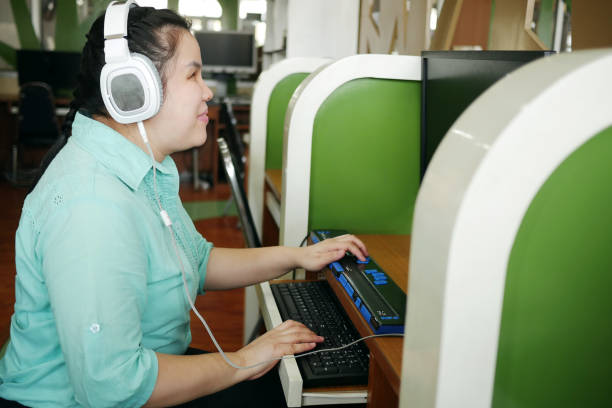
The Role of WebAIM in Advancing Digital Accessibility
One of the leading organizations at the forefront of promoting digital accessibility is WebAIM, a program within the Institute for Disability Research, Policy, and Practice. WebAIM is dedicated to ensuring that the web is accessible to individuals with disabilities through research, training, evaluation, and consulting services. By diving into the challenges faced by individuals with disabilities in navigating digital landscapes, WebAIM illuminates pathways to accessibility. Through rigorous research endeavors, they unearth best practices and pioneering solutions to enhance digital inclusivity. Complementing their research, WebAIM provides a wealth of educational resources, including articles, tutorials, and webinars, fostering awareness and empowering individuals and organizations alike to foster more accessible digital experiences. WebAIM's commitment to accessibility extends to aiding organizations in assessing their digital assets. Through their evaluation and testing services, they meticulously scrutinize websites and digital products, pinpointing accessibility barriers and furnishing actionable recommendations for rectification. This comprehensive approach ensures alignment with established accessibility standards like the Web Content Accessibility Guidelines (WCAG), fortifying organizations' dedication to inclusivity. For organizations navigating the complexities of implementing accessibility best practices, WebAIM stands ready with tailored consulting and technical assistance. Drawing upon their cadre of experts, they offer bespoke support, whether in formulating accessibility policies, conducting audits, or imparting training. This personalized approach equips organizations with the tools and knowledge to embed accessibility seamlessly into their digital endeavors. WebAIM's impact extends beyond individual consultations, encompassing collaborative efforts with stakeholders across sectors. Through engagement with policymakers, industry leaders, and advocacy groups, they champion the cause of accessibility, advocating for policies and standards that prioritize digital inclusivity. By amplifying awareness and fostering collaboration, WebAIM endeavors to ensure equal access to digital information and services for all, regardless of ability.
WFCF’s Commitment to Accessibility
At WFCF, we are committed to promoting digital accessibility and inclusive design in all our initiatives. We recognize that accessible technology plays a crucial role in empowering individuals with disabilities and fostering their full participation in society. Through our projects, we strive to ensure that digital resources, such as educational materials, healthcare information, and communication platforms, are accessible to all beneficiaries, regardless of their abilities.Support WFCF
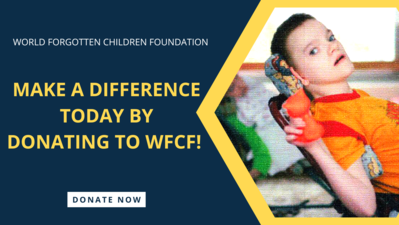
The mission of World Forgotten Children Foundation (WFCF) is to support projects that help orphaned children with disabilities in developing countries. Donate today to support underprivileged communities and orphaned children with disabilities in developing countries.


